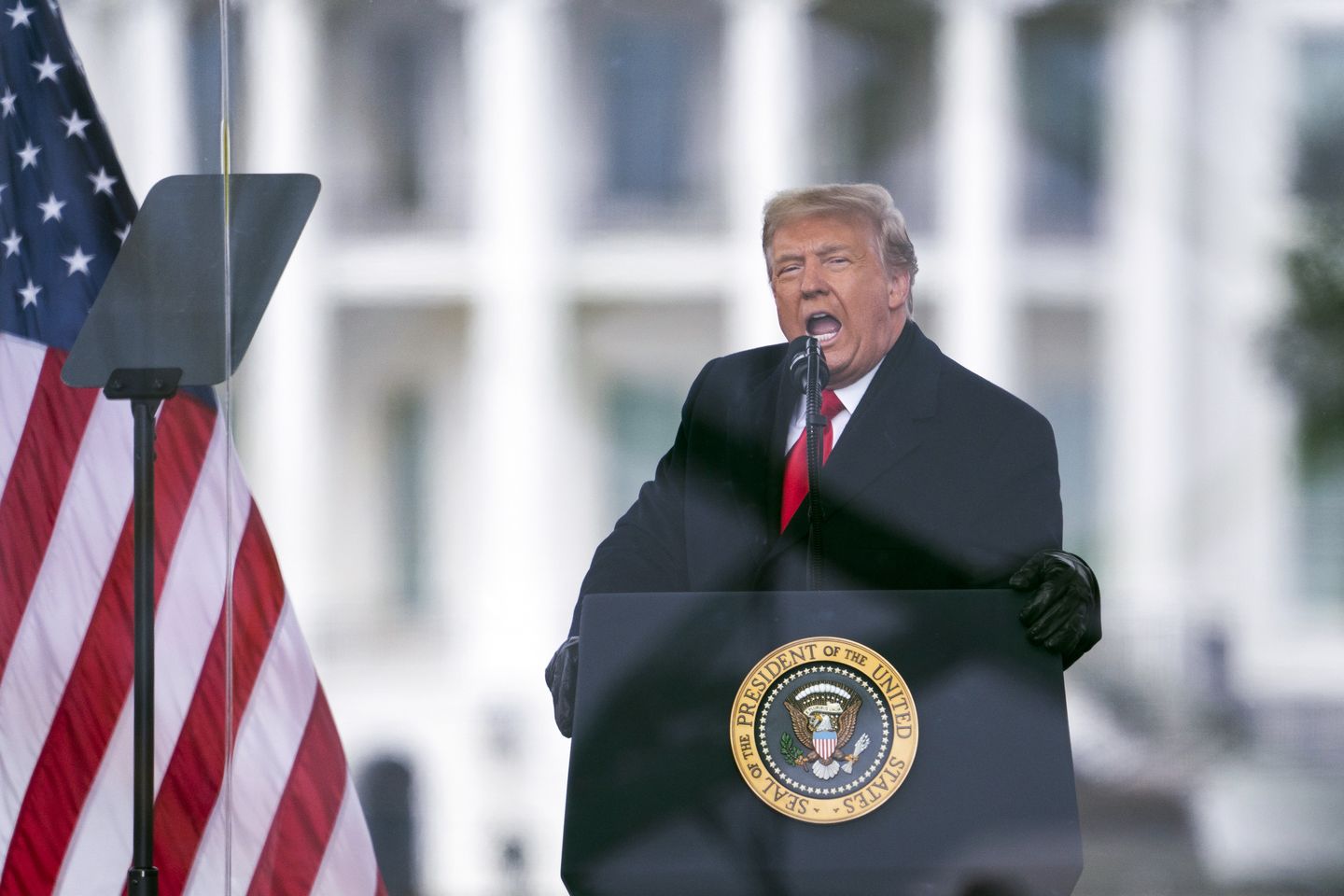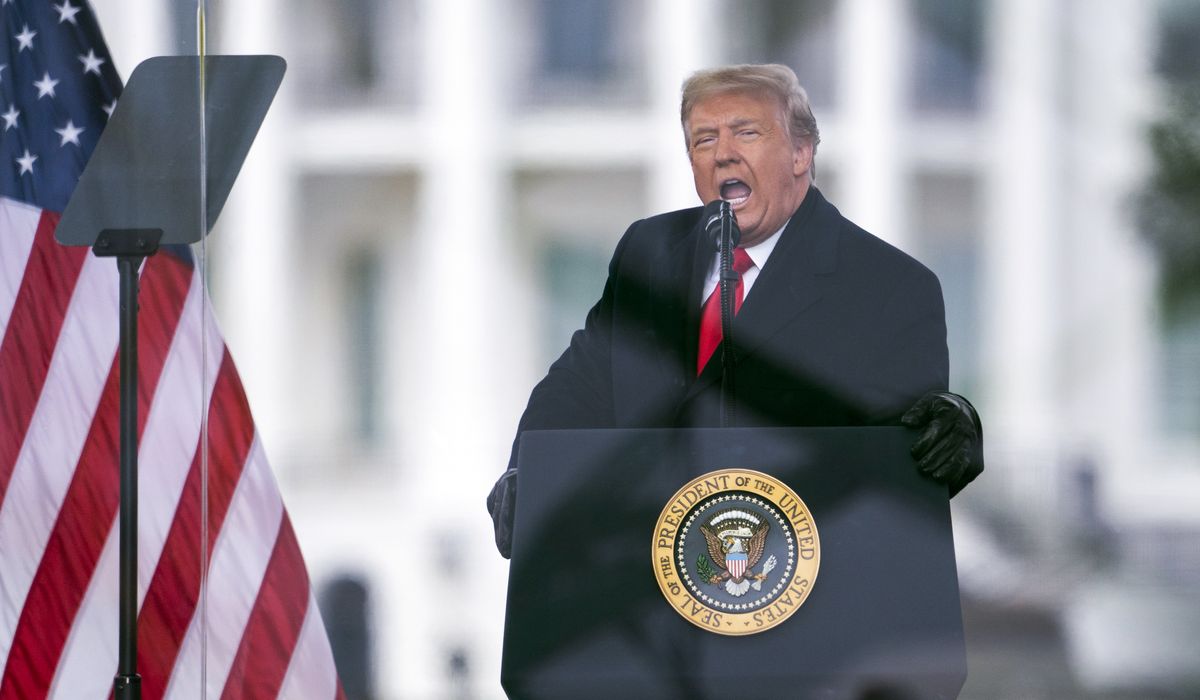

Former President Donald Trump is banking on a Washington Post interview with the chairman of the House committee investigating the Jan. 6 attack on the Capitol to back a key claim in his case before the Supreme Court.
In an interview published last week, Rep. Bennie G. Thompson, Mississippi Democrat, told The Post that the committee’s findings into Mr. Trump’s inaction as a mob of his supporters stormed the Capitol could lead to a criminal referral to the Department of Justice.
“That dereliction of duty causes us real concern,” Mr. Thompson told The Post. “And one of those concerns is that whether or not it was intentional, and whether or not that lack of attention for that longer period of time, would warrant a referral.”
<!– Temp removal of in article reco
End comment –>
“I can assure you that if a criminal referral would be warranted, there would be no reluctance on the part of this committee to do that,” Mr. Thompson added.
In a Supreme Court filing Wednesday, Trump’s legal team argued that Mr. Thompson’s comments back up their overarching claim in their case to block the release of White House documents that the committee is attempting to pursue a criminal investigation rather than a legislative inquiry.
“The Committee cannot make a mockery of Congress’s constitutional mandate that its requests and investigation be supported by a ‘valid legislative purpose,’” Mr. Trump‘s lawyers wrote in the filing first reported by CNN. “It cannot embark on what is essentially a law enforcement investigation with the excuse that it might legislate based on information it turns up in the course of the exploration.”
Mr. Trump has sought to block the release of thousands of White House records to the committee.
A federal appeals court declined to apply a blanket restriction to the release of documents as requested by the former president.
The three-judge panel also said Congress has a “uniquely vital interest” in getting to the bottom of Jan. 6 and that handing over the documents was in the public interest.
Mr. Trump has appealed the decision in the Supreme Court.
